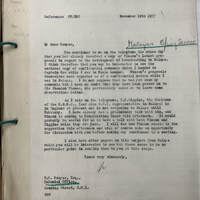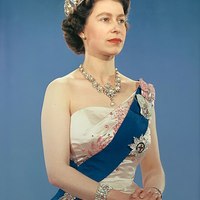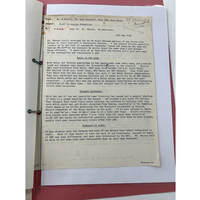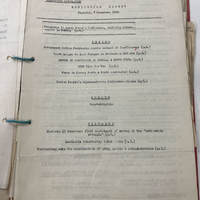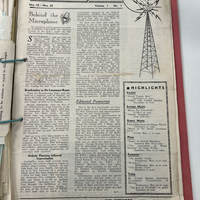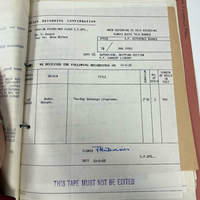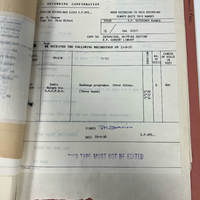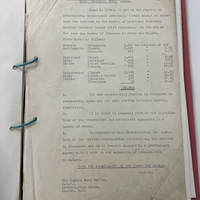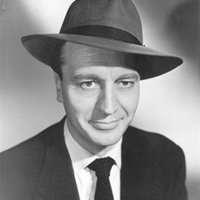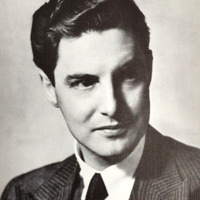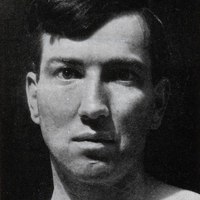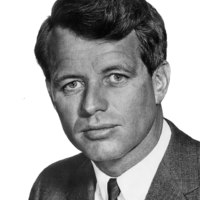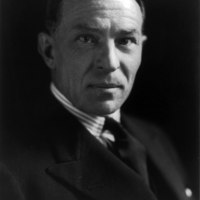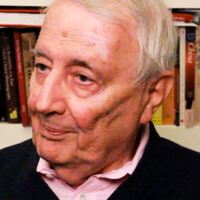Written Archive
Sound Collection | Written Archive | Resources | Access Guide
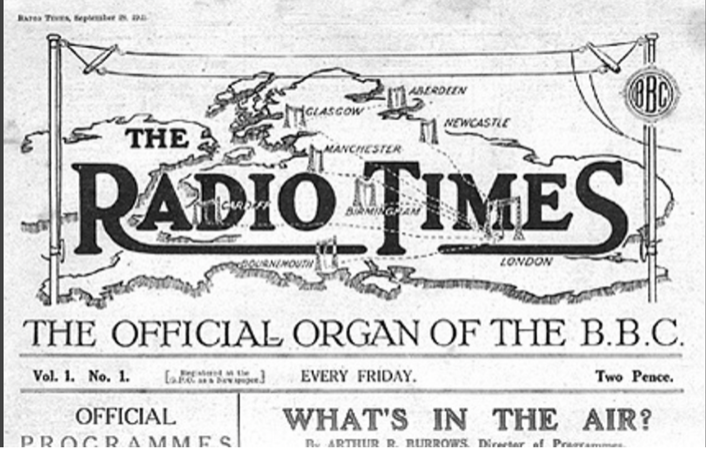
In this section, we provide original correspondence, brochures and other documents related to the establishment of the BBC's operations in South East Asia. All the scans have been vetted for Public use by the BBC Written Archives at Caversham, Reading. but retains BBC Written Archives Copyright.
To search the sound archive, go here.
Search
787 items
-
Plato ( PLAY-toe; born Aristocles; c. 427 – 348 BC) was an ancient Greek philosopher of the Classical period who is considered a top thinker in Philosophy. Plato founded the Academy, a philosophical school in Athens where Plato taught the doctrines that would later become known as Platonism. The philosopher was an innovator of the written dialogue and dialectic forms in philosophy. He was a system-builder. He also raised problems for what became all the major areas of both theoretical philosophy and practical philosophy. Plato's most famous contribution is the theory of forms (or ideas), which has been interpreted as advancing a solution to what is now known as the problem of universals. He had decisive influence in the pre-Socratic thinkers Pythagoras, Heraclitus, and Parmenides, although much of what is known about them derives from Plato himself.Along with his teacher Socrates, and Aristotle, his student, Plato is a central figure in the history of philosophy. Plato's entire body of work is believed to have survived intact for over 2,400 years—unlike that of nearly all of his contemporaries. Although their popularity has fluctuated, they have consistently been read and studied through the ages. Through Neoplatonism, he also greatly influenced both Christian and Islamic philosophy. In modern times, Alfred North Whitehead famously said: "the safest general characterization of the European philosophical tradition is that it consists of a series of footnotes to Plato." (Wikipedia) More »Person
-
Discussion about the use of violence for political purposes in Malaya. The speakers argue that good treatment of captured communists is more effective than torture. More »Spoken voice |Topic: Military Conflict |Audio
-
Letter attaching comments of the sender on the broadcasting proposal made V.H. Winston. contains context on who and why these comments are relevant. More »Message
-
Tom Harrisson narrates a description of the Kelabit people living in the remotest part of Central Borneo. More »Spoken voice |Topic: Culture |Audio
-
Elizabeth II (Elizabeth Alexandra Mary; 21 April 1926 – 8 September 2022) was Queen of the United Kingdom and other Commonwealth realms from 6 February 1952 until her death in 2022. She was queen regnant of 32 sovereign states over the course of her lifetime and remained the monarch of 15 realms by the time of her death. Her reign of over 70 years is the longest of any British monarch, the longest of any female monarch, and the second longest verified reign of any monarch of a sovereign state in history. Elizabeth was born in Mayfair, London, during the reign of her paternal grandfather, King George V. She was the first child of the Duke and Duchess of York (later King George VI and Queen Elizabeth The Queen Mother). Her father acceded to the throne in 1936 upon the abdication of his brother Edward VIII, making the ten-year-old Princess Elizabeth the heir presumptive. She was educated privately at home and began to undertake public duties during the Second World War, serving in the Auxiliary Territorial Service. In November 1947, she married Philip Mountbatten, a former prince of Greece and Denmark, and their marriage lasted 73 years until his death in 2021. They had four children: Charles, Anne, Andrew, and Edward. When her father died in February 1952, Elizabeth—then 25 years old—became queen of seven independent Commonwealth countries: the United Kingdom, Canada, Australia, New Zealand, South Africa, Pakistan, and Ceylon (known today as Sri Lanka), as well as head of the Commonwealth. Elizabeth reigned as a constitutional monarch through major political changes such as the Troubles in Northern Ireland, devolution in the United Kingdom, the decolonisation of Africa, and the United Kingdom's accession to the European Communities, as well as its subsequent withdrawal. The number of her realms varied over time as territories gained independence and some realms became republics. As queen, Elizabeth was served by more than 170 prime ministers across her realms. Her many historic visits and meetings included state visits to China in 1986, to Russia in 1994, and to the Republic of Ireland in 2011, and meetings with five popes and fourteen US presidents. Significant events included Elizabeth's coronation in 1953 and the celebrations of her Silver, Golden, Diamond, and Platinum jubilees in 1977, 2002, 2012, and 2022, respectively. Although she faced occasional republican sentiment and media criticism of her family—particularly after the breakdowns of her children's marriages, her annus horribilis in 1992, and the death in 1997 of her former daughter-in-law Diana—support for the monarchy in the United Kingdom remained consistently high throughout her lifetime, as did her personal popularity. Elizabeth died aged 96 at Balmoral Castle in September 2022, and was succeeded by her eldest son, Charles III. (Wikipedia) More »Person
-
R Benwit reports to BBC Far Eastern Broadcasting Services on Malaya Guerrilla fighters. He notes the following impressions: a) Radio in War Time b) Present Listening c) Interest in Radio d) Knowledge of Standard Chinese e) Present Audience Requirements f) Political Observations More »Message
-
A daily report on listener numbers and general status for Radio Malaya, dated December 8, 1949. The report covers the following topics (9 pages): a) Delegation to Asian Women's Conference in Peking b) Report on Communist China c) Report on Vietnam c) More »Article
-
A copy of Radio Malaya News Volume 1, a newsletter about broadcasting and other affairs pertaining to Radio Malaya. More »Article
-
In a radio newsreel interview, Robert Kennedy gives his perspective on the settlement of a disagreement between Malaysia and Indonesia. The interview was conducted by Ronald Allison and took place on January 24, 1964. The asset ID for this news piece is 60360019748d8fc68c998451. More »Spoken voice |Topic: Culture |Audio
-
The Deputy Defence Secretary was interviewed by Donald Milner in Paris, discussing various matters brought up at the Western European Union Round Table on defense problems. The interview was recorded for Radio Newsreel and broadcast in the General Overseas Service on March 10, 1965. Frederick Mulley also spoke during the interview. No annotations were made. More »Spoken voice |Topic: Military Conflict |Audio
-
In Kuala Lumpur, Roland Challis reported on the failed attempt by Lieut. Col. Untung to overthrow the Government. The report was broadcast on the World Service and recorded for Radio Newsreel. The incident was covered in a script and press cutting, with Challis serving as the speaker. The report was dated October 1, 1965. More »Spoken voice |Topic: Military Conflict |Audio
-
In a 1966 broadcast on Radio Newsreel's World Service, Singaporean Prime Minister Lee Kuan Yew was interviewed by Clifford Luton about the future of Singapore and the British base. The interview took place on April 20, 1966, and was documented in a press cutting with the reference code YHN 6993. More »Spoken voice |Topic: Politics |Audio
-
In a recorded interview for Radio Newsreel, L/Cpl. Rambabadur Nimbu's commanding officer, Capt. Kit Mansell, discussed the circumstances that led to Nimbu being awarded the V.C. The interview was conducted by Peter Stewart and was recorded on May 31, 1966. This information was captured in cell OTN:TAC 2255, TXN/TDT:LP 31-May-1966, and Asset ID: 6035f7bb748d8fc68c93c4a9. More »Spoken voice |Topic: Military Conflict |Audio
-
Rahman, Tunku Abdul, the Prime Minister of the Federation of Malaya, was interviewed by Richard Goold-Adams and Brian Crosier after the close of the Commonwealth Prime Ministers' Conference. South Africa had announced its decision to leave the Commonwealth. The interview was broadcast in the General Overseas Service on March 22, 1961. There are no annotations and the speaker is Rahman Tunku Abdul. The rewind asset ID for this interview is 6035fae4748d8fc68c95ef54. More »Spoken voice |Topic: Politics |Audio
-
In August 1962, Tunku Abdul Rahman, the Prime Minister of the Federation of Malaya, was interviewed at the Ritz Hotel in London by Derek Cooper after the announcement of the agreement in principle for the proposed Federation of Malaysia between the British and Malayan Governments. The interview took place for the Ten O'Clock news and the information was recorded under the asset ID 6035f55d748d8fc68c9223b4. More »Spoken voice |Topic: Politics |Audio
-
In August 1962, Prime Minister Abdul Rahman Tunku was interviewed at the Ritz Hotel in London after the British and Malayan Governments agreed in principle to the proposed Federation of Malaysia. The interview was conducted by Derek Cooper and recorded for Ten O'Clock news. Rahman's thoughts on this significant development were not disclosed. More »Spoken voice |Topic: Politics |Audio
-
Document confirms receipt and recording of Radio Malaya's tape on September 22, 1958. More »Message
-
Document confirms receipt and recording of Radio Malaya's tape on September 15, 1958. More »Message
-
The report notes the following; a) There are 23,486 licences issued at the end of the year. b) The new broadcasting Station in Singapore is nearing completion. c) The installation of transmitters and associated apparatus will commence. d) Mr. Davis of BBC has arrived in Singapore and is engaged in survey for the expansion of broadcasting in Malaya. More »Article
-
Robert Ayres (11 December 1914 – 5 November 1968) was an American film, stage and television actor. He worked mainly in Britain.His stage work included Edward Albee's The American Dream and The Death of Bessie Smith at London's Royal Court Theatre in 1961. (Wikipedia) More »Person
-
Friedrich Robert Donat (18 March 1905 – 9 June 1958) was an English actor. He is best remembered for his roles in Alfred Hitchcock's The 39 Steps (1935) and Goodbye, Mr. Chips (1939), winning for the latter the Academy Award for Best Actor. In his book, The Age of the Dream Palace, Jeffrey Richards wrote that Donat was "British cinema's one undisputed romantic leading man in the 1930s". "The image he projected was that of the romantic idealist, often with a dash of the gentleman adventurer."Donat suffered from chronic asthma, which affected his career and limited him to appearing in only 19 films. (Wikipedia) More »Person
-
Captain Robert von Ranke Graves (24 July 1895 – 7 December 1985)[1][2] was an English poet, soldier, historical novelist and critic. His father was Alfred Perceval Graves, a celebrated Irish poet and figure in the Gaelic revival; they were both Celticists and students of Irish mythology. (Wikipedia) More »Person
-
Robert Francis Kennedy (November 20, 1925 – June 6, 1968), also known by his initials RFK, was an American politician and lawyer. He served as the 64th United States attorney general from January 1961 to September 1964, and as a U.S. senator from New York from January 1965 until his assassination in June 1968, when he was running for the Democratic presidential nomination. Like his brothers John F. Kennedy and Ted Kennedy, he was a prominent member of the Democratic Party and is an icon of modern American liberalism.Kennedy was born into a wealthy, political family in Brookline, Massachusetts. After serving in the U.S. Naval Reserve from 1944 to 1946, Kennedy returned to his studies at Harvard University, and later received his law degree from the University of Virginia. He began his career as a correspondent for The Boston Post and as a lawyer at the Justice Department, but later resigned to manage his brother John's successful campaign for the U.S. Senate in 1952. The following year, he worked as an assistant counsel to the Senate committee chaired by Senator Joseph McCarthy. He gained national attention as the chief counsel of the Senate Labor Rackets Committee from 1957 to 1959, where he publicly challenged Teamsters President Jimmy Hoffa over the union's corrupt practices. Kennedy resigned from the committee to conduct his brother's successful campaign in the 1960 presidential election. He was appointed United States attorney general at the age of 35, one of the youngest cabinet members in American history. He served as his brother's closest advisor until the latter's assassination in 1963.His tenure is known for advocating for the civil rights movement, the fight against organized crime and the Mafia, and involvement in U.S. foreign policy related to Cuba. He authored his account of the Cuban Missile Crisis in a book titled Thirteen Days. As attorney general, he authorized the Federal Bureau of Investigation (FBI) to wiretap Martin Luther King Jr. and the Southern Christian Leadership Conference on a limited basis. After his brother's assassination, he remained in office during the presidency of Lyndon B. Johnson for several months. He left to run for the United States Senate from New York in 1964 and defeated Republican incumbent Kenneth Keating, overcoming criticism that he was a "carpetbagger" from Massachusetts. In office, Kennedy opposed U.S. involvement in the Vietnam War and raised awareness of poverty by sponsoring legislation designed to lure private business to blighted communities (i.e., Bedford Stuyvesant Restoration project). He was an advocate for issues related to human rights and social justice by traveling abroad to eastern Europe, Latin America, and South Africa, and formed working relationships with Martin Luther King Jr., Cesar Chavez, and Walter Reuther. In 1968, Kennedy became a leading candidate for the Democratic nomination for the presidency by appealing to poor, African American, Hispanic, Catholic, and young voters. His main challenger in the race was Senator Eugene McCarthy. Shortly after winning the California primary around midnight on June 5, 1968, Kennedy was shot by Sirhan Sirhan, a 24-year-old Palestinian, allegedly in retaliation for his support of Israel following the 1967 Six-Day War. Kennedy died 25 hours later. Sirhan was arrested, tried, and convicted, though Kennedy's assassination, like his brother's, continues to be the subject of widespread analysis and numerous conspiracy theories. (Wikipedia) More »Person
-
Robert Gilbert Vansittart, 1st Baron Vansittart, GCB, GCMG, MVO, PC (25 June 1881 – 14 February 1957), known as Sir Robert Vansittart between 1929 and 1941, was a senior British diplomat in the period before and during the Second World War. He was Principal Private Secretary to the Prime Minister from 1928 to 1930 and Permanent Under-Secretary at the Foreign Office from 1930 to 1938 and later served as Chief Diplomatic Adviser to the British Government. He is best remembered for his opposition to appeasement and his strong stance against Germany during and after the Second World War. Vansittart was also a published poet, novelist and playwright. (Wikipedia) More »Person
-
Roderick Lemonde MacFarquhar (2 December 1930 – 10 February 2019) was a British China scholar, politician, and journalist. MacFarquhar was founding editor of China Quarterly in 1959. He served as a Member of Parliament in the 1970s, then joined the BBC .In the 1980s, he became a professor at Harvard University, where he served several terms as director of the Fairbank Center for Chinese Studies. He was best known for his studies of Maoist China, the three-volume The Origins of the Cultural Revolution and Mao's Last Revolution. (Wikipedia) More »Person
Show filters +



